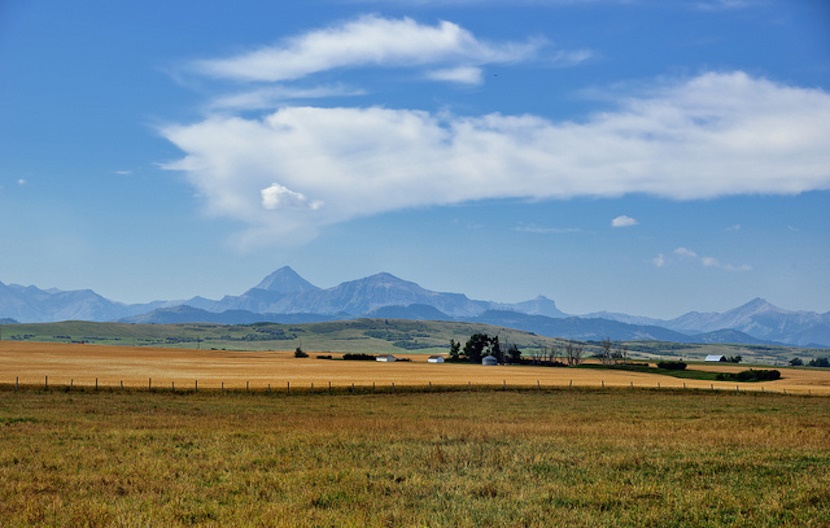
The recent output of the Constitutional Court has been something of a curate's egg but in one area the court has been both consistent and progressive. That area of law concerns land.
Indeed from its inception the court has revealed a considerable understanding for the consequences of land dispossession that was so central to the brutal apartheid regime. This level of judicial perception is again illustrated in the recent judgment in Maledu and others v Itereleng Bakgatla Minerals Resources (Pty) Limited (Itereleng) and another, which was delivered on 25 October 2018.
The case involved members of the Lesetlheng community. In 1916 their forebears purchased a farm. Given the racially saturated legal system at that time, the land could not be transferred into their names. Thus it came to pass that the transfer was passed to the minister who astonishingly still holds the land more than a hundred years later.
Fast forward a little short of a century and Itereleng obtained a prospecting right over the farm from the Department of Mineral Resources. Thereafter Itereleng and another mining company, Pilanesberg Platinum Mines (Pty) Ltd, concluded an agreement in terms of which the former ceded its right to mine on a portion of the farm to the latter company.
Once mining commenced, the lives of those applicants living on the farm were seriously affected. They sought an order from the High Court to restore their peaceful enjoyment of their land. Their success was cut short when the mining company obtained an eviction order.
The High Court found that the applicants were not the owners of the land, a consultation process had taken place between the community and the mining company which had a valid mining right and could evict them. The applicants unsuccessfully applied for leave to appeal to the Supreme Court of Appeal. In desperation they turned to the Constitutional Court which heard the case.
The court referred to the Interim Protection of Informal Land Rights Act (IPILRA) which, although an interim piece of legislation, is still in force until the end of 2018. It provides for the temporary protection of those whose rights and interests are not adequately protected by law. This legislation was designed to protect people like the applicants who, by virtue of the racist legal system of the past, were denied rights of ownership to property which had been bought by their forebears.
Turning to the mining rights, the court described these as having "an invasive nature" by which was meant that the exercise thereof would intrude on the rights of the owner of the land on which the mining takes place. In this case it was accepted by the mining companies that the mining operations could not take place if the applicants continued to occupy the land. It was for this reason that the provisions of IPILRA became so important; after all, if the applicants had no right in law to occupy the land, then the mining rights provided a clear basis for their eviction.
Unlike the High Court, the Constitutional Court lifted its judicial gaze above legal formalism to see the history behind this kind of dispute. Thus, it said:
"Mindful of our past, which was characterised by oppression, deprivation of a significant segment of our society and deep-rooted inequalities, our Constitution places a high premium on the absolute need to redress the injustices of that shameful past. In relation to those members of society who were denied equal access to land and security of tenure, section 25(6) of the Constitution sets out to redress the attendant inequalities. It provides in unequivocal terms that any 'person or community whose tenure of land is legally insecure as a result of past racially discriminatory laws or practices is entitled to tenure which is legally secure or to comparable redress'. As is manifest from its preamble, IPILRA seeks to provide for the protection of certain rights to and interest in land that were previously not otherwise protected by law."
For these reasons the court held that the precise purpose of IPILRA was to assist those informal occupiers of land who lacked a legal right, in this case, to ownership, only because of our egregious past.
To the argument that the community had agreed to the mining rights when a community meeting was held, the court looked carefully at the evidence and concluded that no decision had been taken by the majority of the holders of the informal rights who were either present or represented at the relevant meeting. This finding is important in that it prevents the corruption of informal rights by way of a contrived meeting between a few members of the community who, for obvious reasons, may be well disposed to a mining company seeking to enforce its mining rights.
In summary, this decision is of great importance: it recognises informal rights to land, it curbs the unfettered power of a mining company to ignore those who had lived on the land for aeons and it insists that those affected, and not a chosen few, have a voice to decide whether to negotiate about mining that affects their continued occupation of land.
- Serjeant at the Bar is a senior legal practitioner with a special interest in constitutional law.
Disclaimer: News24 encourages freedom of speech and the expression of diverse views. The views of columnists published on News24 are therefore their own and do not necessarily represent the views of News24.




 Publications
Publications
 Partners
Partners























